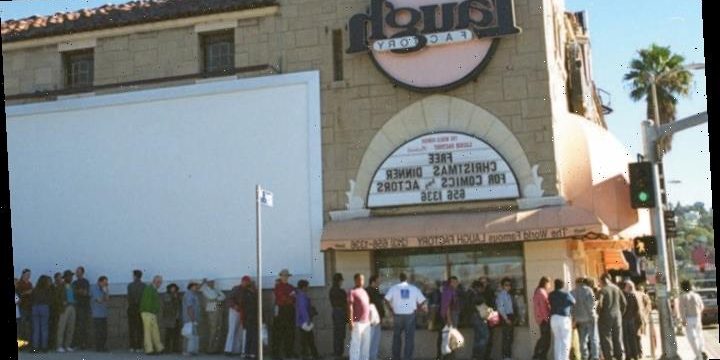They say that everyone has a story to tell. It’s become Jamie Masada’s mission to help some people learn how to tell theirs.
For 35 years, the founder of the Laugh Factory has made his main location on Sunset Boulevard home to a comedy camp for kids ages 9 to 16. While all are welcome to audition to be a part of the action, he’s particularly interested in helping those who have faced hardships.
More than 1,000 disadvantaged tweens and teens have benefitted from the program, which brings in A-listers like Jim Carrey and Dave Chappelle to offer expert coaching. And Masada says he’s considering expanding the camp to his Chicago club.
“All we do with the comedy camp is we give them enough confidence … that, anywhere they go, they can be able to communicate with people,” says Masada, who came up with the idea for the camp after he met a shy, emotionally broken kid after a performance in Compton and gave him a job at his club. There is no expectation that all graduates will end up with a career in comedy — one became an oil executive.
Comedian and actress Tiffany Haddish frequently tells the story that she ended up at the Comedy Camp while in foster system and was advised by her social worker that “you have two choices: You can either go the Laugh Factory Comedy Camp or you can go to psychiatric therapy.”
She chose the former and says that “from then on out, it’s like, I always had a safe place” with Masada taking on a father figure role of encouraging her “buddy, buddy, buddy, buddy, you can do better; I know this. You can be a big star.”
He also respects the emotional and physical exhaustion it takes to do the job of a comedian. After the 2007 suicide of comic Richard Jeni, Masada began bringing in psychiatrists to offer therapy. He also has a reputation for watching performances and offering constructive criticism, although this has lessened as he has a wife and two small children.
But it is by no means the only way that Masada gives back to the community. He offers meals for those in need during holidays like Thanksgiving and Christmas and free religious services during the Jewish High Holy Days, encouraging his friends and regular performers to get involved (Tim Allen has been known to dress as Santa Claus during the winter and hand out $100 bills.)
While it’s almost expected for business owners of a certain ilk to offer these services now, journalist William Knoedelseder, who has covered the L.A. comedy scene through articles and his book “I’m Dying Up Here,” says: “Nightclub owners weren’t in the business of doing that back then” during the Laugh Factory’s early days.
“He likes to do things that aren’t dedicated to making a profit and I applaud anybody who does that,” Knoedelseder says. “He’s making the life of comics a lot easier.”
And, fittingly for someone working in an industry that thrives on performers’ needs for self-expression, he’s been actively involved with organizations that protect and promote it. He was given the ACLU Freedom of Speech Award and the NAACP Freedom Award.
“Freedom of speech is freedom of everything,” Masada says. “I think you need to have people like that be there to help you … ACLU’s got to be the voice for underprivileged people [or] people who have been put in jail for no reason … that’s what the ACLU’s about.”
Allen says: “The most fruitful part of Jamie is the stuff he does that you don’t even know he does.
“I love when you do stuff without expecting anything in return. And he does a lot of that,” he adds before laughing, “I wish I didn’t have to say nice things him about because, generally, I like busting his balls.”
Popular on Variety
Source: Read Full Article
